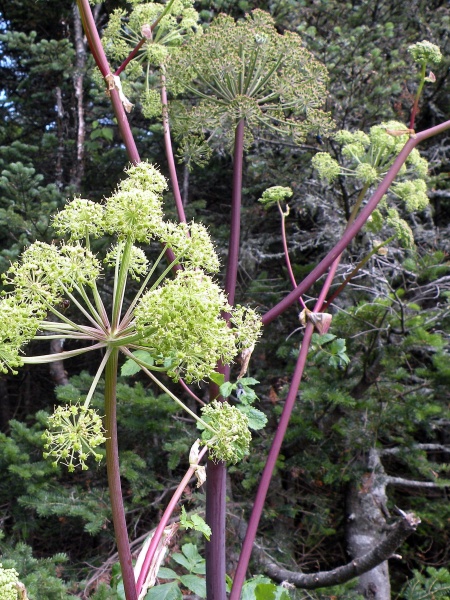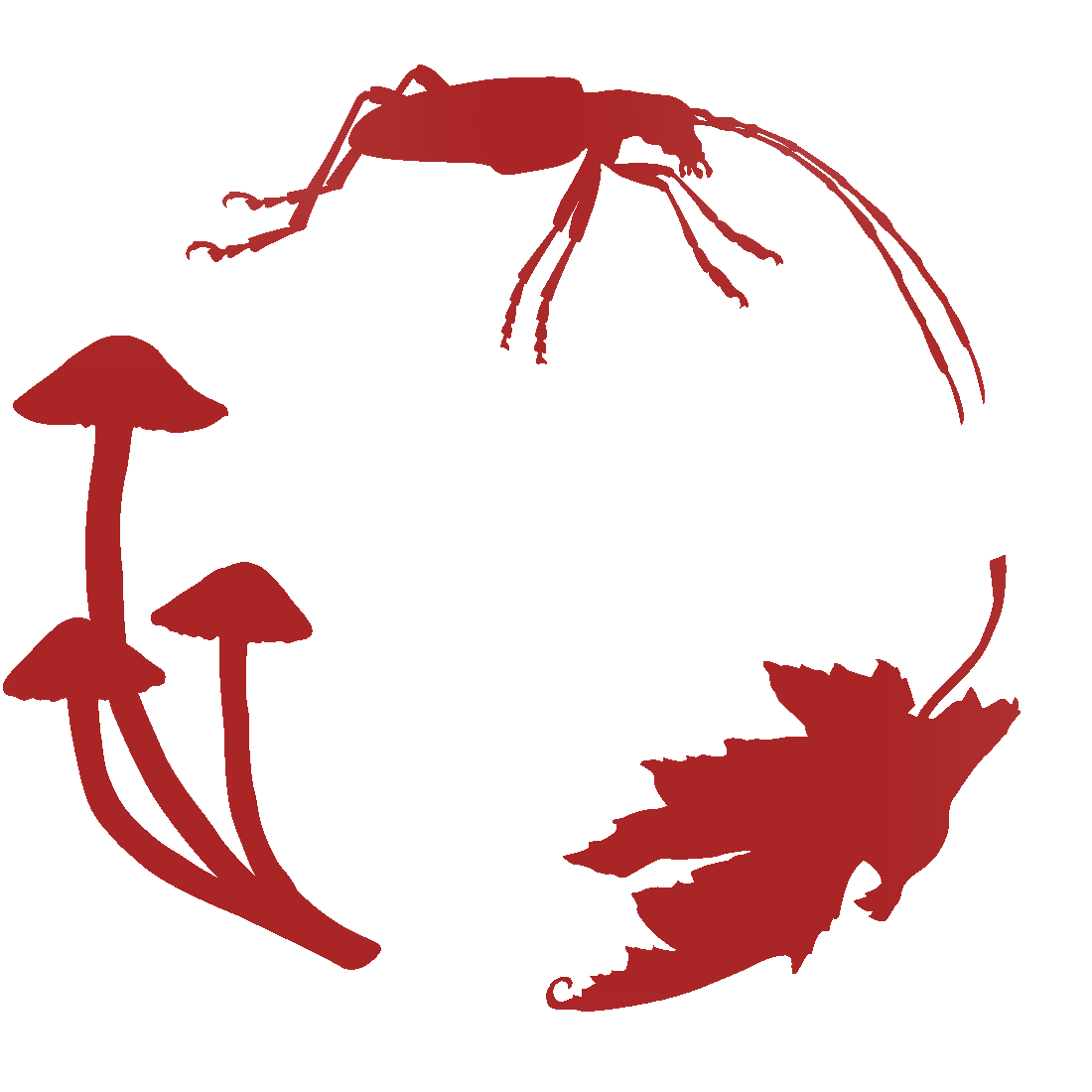
Source: Doug McGrady
Angelica atropurpurea
Purple-stemmed Angelica
Angélique pourpre
Synonyms
dark-purple alexanders
great angelica
purple alexanders
purple angelica
angélique noire-pourprée
angélique pourpre foncé
No seeds available for this plant.
We currently accept seeds for this plant
Bloom Colour: Green
Bloom Period: May - Jun
Max Height: 7.0 feet
Max Width: 4.0 feet
Light Condition:
 More than 6 hours of direct sun a day
More than 6 hours of direct sun a day
 More than 2 or 3 hours but less than 6 hours of direct sun a day
Soil conditions:
More than 2 or 3 hours but less than 6 hours of direct sun a day
Soil conditions:
 Tolerates medium soil condition
Tolerates medium soil condition
 More than 6 hours of direct sun a day
More than 6 hours of direct sun a day
 More than 2 or 3 hours but less than 6 hours of direct sun a day
More than 2 or 3 hours but less than 6 hours of direct sun a day
 Tolerates medium soil condition
Tolerates medium soil condition
Lifespan:
Perennial
plants that will that come back year after year
Gardener Experience:
 Does not spread uncontrollably
Does not spread uncontrollably
 Self-seeding
Self-seeding
 Does not spread uncontrollably
Does not spread uncontrollably
 Self-seeding
Self-seeding
Landscape Uses:
 Suitable for wetland garden
Suitable for wetland garden
 Suitable for wetland garden
Suitable for wetland garden
Ecological Benefits:
No ecological benefits information available.
Tolerates:
 Deer resistant
Deer resistant
 Rabbit resistant
Rabbit resistant
 Deer resistant
Deer resistant
 Rabbit resistant
Rabbit resistant
Special Features and Considerations:
 This plant causes skin rashes
This plant causes skin rashes
 This plant causes skin rashes
This plant causes skin rashes
Plant Location
Native to Ottawa region: Yes
Distribution according to VASCAN

Ephemeral
Native
Introduced
Excluded
Extirpated
Doubtful
Absent
Thrives in Ecozones
- Atlantic Maritime
- Taiga Shield
- Prairies
- Boreal Shield
- Mixed Wood Plains
Ecological Benefits
Butterflies Supported by Angelica atropurpurea
- Papilio polyxenes (Black Swallowtail)
Specialized Bees Supported by Angelica atropurpurea
No bee data available for this plant.
Plants that grow in similar conditions, that bloom at the same time.
Complementary Plants
- No complementary plants found.
Substitute For Non-Native Plants
- Hydrangea (Hydrangea)
Sowing Information
Download Seed Envelope Labels (PDF)
- Sowing depth: Surface sow
- Sow anytime
- Stratification duration: 0 days
- Self-seeding
- Notes: Double dormancy.
Harvesting and Seed Sharing
- Harvest start month: August
- Harvesting indicator:
- Pods are brown and crisp and starting to open
- Seeds are dark and tiny stem attaching to the main stem is brown
- Seeds easily fall off pod when shaken
- Little stem connecting the pod to the main stem is brown (not green)
- Harvesting:
- Use hand to detach from main stem
- Seed viability test:
- No test needed before donating
- Packaging measure: 1 rounded 1/4 teaspoon
- Seed storage:
- Air dry in paper bag or open container, for a few days until crisp
- Shake seeds to move them once in a while to prevent molding
- Cultivar: No, you can donate without knowing the source as there are only straight species
- No harvesting video available at this time.
Toxicity Notes
Inadequate information on toxicity found.


 Canadensis
Canadensis
